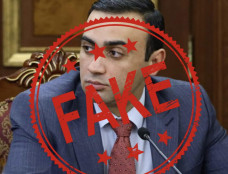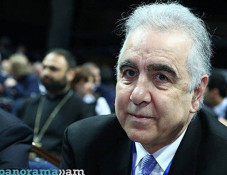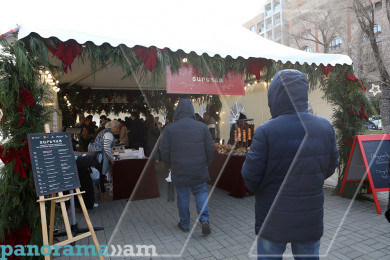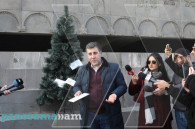
India's PM casts his vote in world's largest elections
Prime Minister Narendra Modi voted early as India held the third phase of a massive general election on Tuesday, and called for a strong turnout although he warned of the scorching summer heat, Reuters reported.
The world's most populous nation began voting on April 19 in a seven-phase election in which nearly one billion people are eligible to vote, with ballots set to be counted on June 4.
Modi is seeking a rare, third straight term in a vote which pits his Hindu nationalist Bharatiya Janata Party (BJP) against an alliance of more than two dozen opposition parties. Surveys suggest he will win a comfortable majority.
"I urge all citizens to vote in large numbers and celebrate the festival of democracy... To all those working in the heat, I urge you to take care of your health and drink adequate water," he said shortly after voting in his home state of Gujarat.
Modi cast his ballot in the Gandhinagar constituency where his number two, Home Minister Amit Shah, is the BJP candidate.
Clad in saffron and white, Modi was surrounded by hundreds of supporters and party members, signing autographs and talking to children on the way to the polling booth.
He was received by Shah as people beat drums and rang bells.
Modi's campaign began by showcasing his economic record, welfare measures, national pride and personal popularity.
But it changed tack after the first phase of voting on April 19 and focused more on firing up BJP's Hindu base by attacking rivals as pro-Muslim, even as surveys say jobs and inflation are the main concerns of voters.
In an interview with broadcaster Times Now aired on Monday, Modi said he does not oppose Islam or Muslims and wants the community to think about their future growth as they vote.
Tuesday's polling covers 93 seats in 11 states and territories, with Gujarat and Maharashtra in the west and Karnataka in the south accounting for 50 seats. That would complete voting for 283 of parliament's 543 elected seats.
Voter turnout of 66.14% and 66.71% respectively in the first two phases has been marginally lower than corresponding phases five years back, with analysts blaming the summer heat and the lack of a single strong issue to motivate voters.
Newsfeed
Videos






























